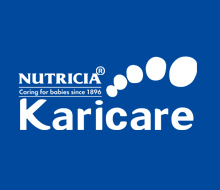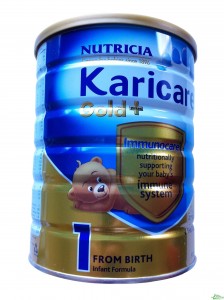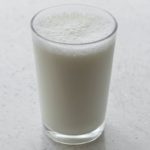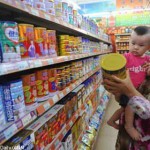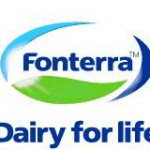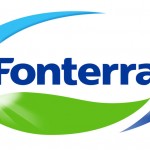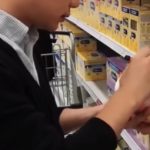The difficulty of infant formula market in China : the example of Karicare
Karicare is a leading infant formula brand of the global maternal and child nutrition experts Nutricia.
Karicare has been founded in 1896, developed by Dr. Truby King with the incentive of “Help fatigued mothers, protect cute babies”. After a hundred years of development, Karicare has now become the market leading brand in New Zealand and Australia, and the most preferred brand for mothers in New Zealand and Australia.
After the scandal on infant formula in China, Australia’s and New Zealand’s milk was quite popular in the Middle Kingdom. However, 2013’s scandale let the brand drop to disapear from China’s market. It is a good example of the difficulty to etablish in China when it comes to baby safety.
Why New Zealand and Australia’s milk was popular in China
New Zealand’s climate is pleasant, with enough sunshine and very lush plantation. The forest area accounts for about 29% of the country’s entire area, and consequently the ecological environment is very satisfying. Under the situation of fertile land and the government supported natural protection, New Zealand is a country emphasizing industries like agriculture, animal husbandry, tourism and education. The New Zealand government strictly controls industry, resulting in very little air pollution.
At present, New Zealand is the only country that produces milk where epidemic of avian influenza, foot-and-mouth disease, and mad cow disease has not yet appeared. Moreover, animal husbandry adopt complete stocking way, unlike the United States and other countries feeding with provender, resulting probable containing of hormones or genetically modified particules in the milk. Therefore the undoubted quality of the New Zealand animal husbandry is world-famous, renowned in Europe, the United States and other countries.
In China, as the safety of food industry’s product, in particular baby food, has become such a sensitive topics, this milk is going to be very attractive. Majority of China’s imports came from New Zealand, which counted for 25% of its exports.
Market Research China on Karicare’s development
Karicare is a sub-brand of NUTRICIA under infant formula company Danone, owning an astounding 72% market share in New Zealand. In August, 2011, Karicare officially entered China market, and set up sales channels on Taobao, u1baby, 360buy and other well-known online shopping websites in China, enjoying an average 80% sales growth per month. It was said that, after entering Guangdong, Karicare will soon open stores in Fujian, Guangxi, with an objective of reaching the scale of over 3000 shops in China.
Troubles of Karicare’s brand strategy
The troubles started with a micro blogger recently broke the news that she had bought fake Karicare milk powder. This blogger claimed that she thought that what she had bought was Karicare milk powder with new packaging after it localized in China. But she found it to be completely different with those Karicare ones she had bought before and realized that she was kind of hoodwinked.
Another blogger on the Internet also warned consumers by uploading relative photos, saying that there was some company in Shanghai claiming to be incorporation with Karicare released “Karicare” infant formula, which turned out to be fake ones called similar pronounced name in Chinese. Karicare’s high quality products has always been it greatest advantage and thus it is more likely to be copied. To treasure its precious reputation and to maintain its brand strategy, Karicare probably should consider seriously its strategy in China for anti-counterfeit mission.
However, in 2013, new Zealand milk powder has been banned from the China’s market as a bacteria which can cause serious disease to baby has been found in imported production. Thus, all the effort done by the brand Karicare for many year to build a relevant and efficient brand strategy and commercial development in China has been wasted.
http://www.abc.net.au/news/2013-08-04/an-china-bans-nz-milk/4863858
http://www.nzherald.co.nz/business/news/article.cfm?c_id=3&objectid=10890692


